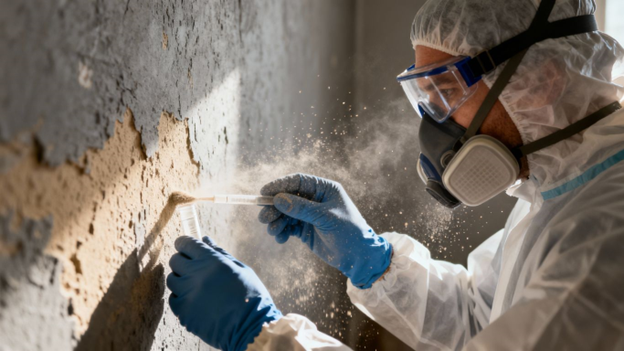
What Are Mesothelioma Clinical Trials?
Clinical trials are research studies that involve people. They are designed to test new medical approaches, like treatments or diagnostic tools. For mesothelioma, these trials are a way to see if new therapies are safe and effective for patients. They represent a critical step in developing better ways to manage and treat this rare cancer. Researchers carefully plan these studies to answer specific questions about the new approach. This might involve comparing a new drug to a standard treatment, or testing a new combination of therapies.
Why Participate in Mesothelioma Clinical Trials?
Deciding to join a clinical trial is a significant choice for a patient. There are several reasons why individuals might consider it:
- Access to New Treatments: Participants may get access to treatments that are not yet widely available. These are often the latest developments in mesothelioma research.
- Contribution to Science: By participating, patients contribute to medical knowledge. Their involvement helps researchers understand more about mesothelioma and how to fight it, potentially helping future patients.
- Close Medical Attention: Clinical trials usually involve frequent check-ups and monitoring by a team of medical professionals. This can provide a high level of care and attention.
Eligibility Criteria for Mesothelioma Clinical Trials
Not everyone can join every clinical trial. Each study has specific rules, called eligibility criteria, that potential participants must meet. These criteria help ensure the safety of the participants and that the study results are clear and reliable. Common criteria include:
- Type and Stage of Mesothelioma: The trial might be for a specific type of mesothelioma (e.g., pleural, peritoneal) or a particular stage of the disease.
- Previous Treatments: Some trials require participants to have had certain treatments already, while others might be for patients who haven’t received any treatment.
- Overall Health: A person’s general health status is often a key factor. Doctors will assess if a patient is well enough to undergo the study treatment and follow-up.
- Age: Many trials have age restrictions.
Current Avenues in Mesothelioma Research
Investigational Drug Therapies
Researchers are constantly looking for new drugs to fight mesothelioma. Many of these are tested in clinical trials. Some drugs aim to stop cancer cells from growing or to kill them directly. Others work by making the body’s own immune system better at attacking the cancer. It’s a complex process, and finding drugs that are both effective and safe takes time. The goal is to find treatments that can improve outcomes for patients. These experimental treatments are often the first step towards new standard care options.
Advancements in Immunotherapy
Immunotherapy has become a major focus in mesothelioma research. This type of treatment helps the immune system recognize and attack cancer cells. For a long time, mesothelioma was hard to treat with immunotherapy, but recent breakthroughs have changed that. The combination of certain drugs, like Opdivo and Yervoy, has already been approved and shows promise for patients with pleural mesothelioma. Scientists are exploring other ways to boost the immune response, looking at different types of immunotherapy and how they might work together. This area is really changing how we think about treating this disease new treatment options.
Novel Surgical Techniques
While drugs and immunotherapy get a lot of attention, surgery is also evolving. Surgeons are developing new methods to remove tumors more effectively, sometimes using minimally invasive approaches. These techniques aim to reduce recovery time and side effects for patients. Sometimes, surgery is combined with other treatments, like radiation or chemotherapy, to get the best results. The focus is on improving the precision of surgery and its overall impact on patient survival and quality of life. Research continues to refine these surgical methods, offering hope for better management of the disease experimental mesothelioma treatments.
Navigating the Landscape of Mesothelioma Trials
Finding Relevant Mesothelioma Clinical Trials
Locating the right mesothelioma clinical trial can feel like searching for a needle in a haystack. It requires a systematic approach and access to reliable information. Patients and their caregivers often start by discussing options with their oncologist, who may have direct knowledge of ongoing studies or can connect them with specialists. Online databases are also a significant resource. Websites like ClinicalTrials.gov, maintained by the U.S. National Library of Medicine, list thousands of trials worldwide. These databases allow users to filter by disease, location, treatment type, and other criteria. However, the sheer volume of information can be overwhelming. It’s important to approach these searches with specific questions in mind. What stage is the disease? What treatments have been tried before? What is the patient’s overall health status? Answering these helps narrow down the possibilities. Careful consideration of trial specifics is key to finding a suitable match.
The Role of Research Institutions
Major cancer centers and academic medical institutions are often at the forefront of mesothelioma research. These centers typically have dedicated clinical trial offices staffed by researchers, nurses, and coordinators who manage studies. Participating in a trial at such an institution means access to a multidisciplinary team of experts who specialize in mesothelioma. These teams often include medical oncologists, thoracic surgeons, radiologists, and pathologists, all working together. The infrastructure at these sites also supports rigorous data collection and patient monitoring, which is vital for the success of any clinical trial. Furthermore, these institutions are often involved in the early phases of drug development, meaning they may offer access to treatments that are not yet widely available.
Understanding Trial Phases and Objectives
Clinical trials progress through distinct phases, each with a specific purpose. Understanding these phases helps patients know what to expect:
- Phase 1: These trials are typically the first time a new treatment is tested in humans. The main goal is to assess safety, determine a safe dosage range, and identify side effects. They often involve a small number of participants.
- Phase 2: Once a treatment is deemed safe, Phase 2 trials focus on whether the treatment works for a specific type of cancer, like mesothelioma. They evaluate the treatment’s effectiveness and continue to monitor safety and side effects in a larger group of patients.
- Phase 3: These trials compare the new treatment to the current standard treatment. They aim to confirm the new treatment’s effectiveness, monitor side effects, and collect information that will allow the new drug or treatment to be used more widely. These trials usually involve a large number of patients.
- Phase 4: These studies occur after the new treatment has been approved and is available on the market. They gather additional information about the treatment’s risks, benefits, and optimal use in different populations and over longer periods.
Potential Benefits and Risks of Participation
Participating in a mesothelioma clinical trial can present both significant advantages and potential drawbacks that patients should carefully consider. It’s a decision that requires a thorough understanding of what involvement entails.
Access to Cutting-Edge Treatments
One of the primary draws for patients entering clinical trials is the opportunity to receive treatments that are not yet widely available. These investigational therapies might represent the next generation of mesothelioma care, potentially offering better outcomes than standard options. This access can provide a sense of hope and a proactive approach to managing the disease. Patients are often among the first to benefit from promising new drugs or treatment combinations developed through extensive research.
Close Medical Monitoring
Individuals enrolled in clinical trials typically receive a high level of medical attention. Their health status is monitored very closely throughout the study. This includes:
- Frequent check-ups and diagnostic tests.
- Regular assessments by a dedicated research team.
- Prompt attention to any changes in their condition.
This intensive oversight ensures that any adverse reactions can be identified and managed quickly, and it also provides a detailed picture of how the patient is responding to the experimental treatment.
Potential Side Effects and Unknowns
It is important to acknowledge that experimental treatments carry inherent risks. Because these therapies are still under investigation, their full range of side effects may not be completely understood. Patients might experience reactions that are different from or more severe than those associated with established treatments. Furthermore, there’s always the possibility that an experimental treatment may not be effective for a particular individual. The unknowns are a significant factor, and patients must be prepared for the possibility that the trial treatment may not yield the desired results or could cause unexpected complications. Open communication with the research team about these potential risks is vital before making a decision to participate.
The Future of Mesothelioma Treatment Through Trials
Emerging Treatment Modalities
The landscape of mesothelioma treatment is constantly evolving, largely driven by the innovative approaches explored in clinical trials. Researchers are looking beyond traditional chemotherapy and radiation, investigating new ways to target cancer cells more effectively and with fewer side effects. This includes exploring novel drug combinations, looking at different ways to deliver existing treatments, and even repurposing drugs approved for other conditions to see if they can help mesothelioma patients. The goal is to find therapies that are not only potent against the cancer but also gentler on the patient’s body.
Personalized Medicine Approaches
One of the most exciting frontiers in mesothelioma research is the move towards personalized medicine. This means tailoring treatments to the individual patient’s specific cancer. Instead of a one-size-fits-all approach, doctors and scientists are working to understand the unique genetic makeup of a patient’s tumor. This allows for the selection of therapies most likely to work for that particular individual. Key steps in this process include:
- Biomarker identification: Finding specific markers in the tumor that indicate which drugs will be most effective.
- Genetic sequencing: Analyzing the DNA of the cancer cells to identify mutations that can be targeted.
- Tailored treatment plans: Developing treatment strategies based on the patient’s genetic profile and the tumor’s characteristics.
This shift promises more effective treatments with potentially fewer adverse reactions.
The Impact of Patient Advocacy
Patient advocacy groups play a significant role in shaping the future of mesothelioma treatment through trials. These organizations often provide vital support to patients and their families, helping them understand their options and connect with relevant clinical trials. Furthermore, patient advocates frequently work with researchers and policymakers to:
- Raise awareness about mesothelioma and the need for better treatments.
- Help fund research initiatives.
- Ensure that patient needs and perspectives are considered throughout the research and development process.
Their involvement is instrumental in driving progress and ensuring that the focus remains on improving the lives of those affected by this disease.
Helpful Links
Essential Things to Know Before Hiring In-Home Care Services
January 23, 2026The Importance of Ergonomics in Everyday Life
December 30, 2025
Leave a reply Cancel reply
-
Exploring the Role of Hormones in Women’s Health
December 24, 2025 -
How Simple Meals Lead to Better Nutrient Uptake?
April 23, 2025






